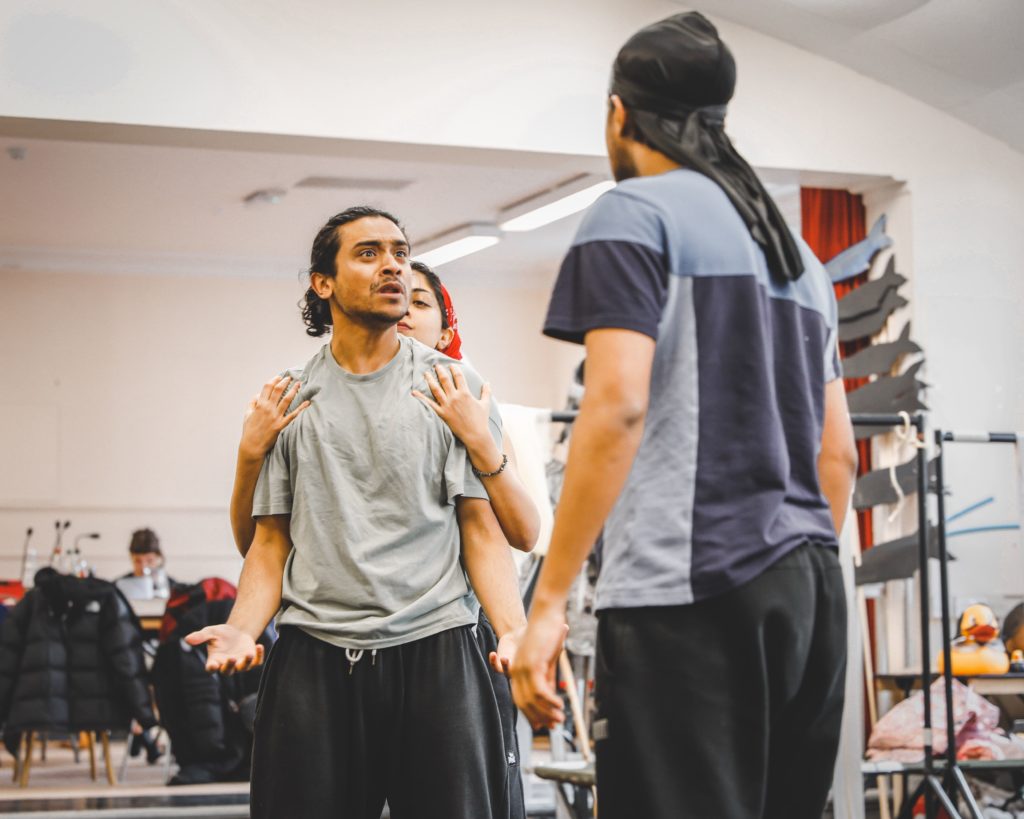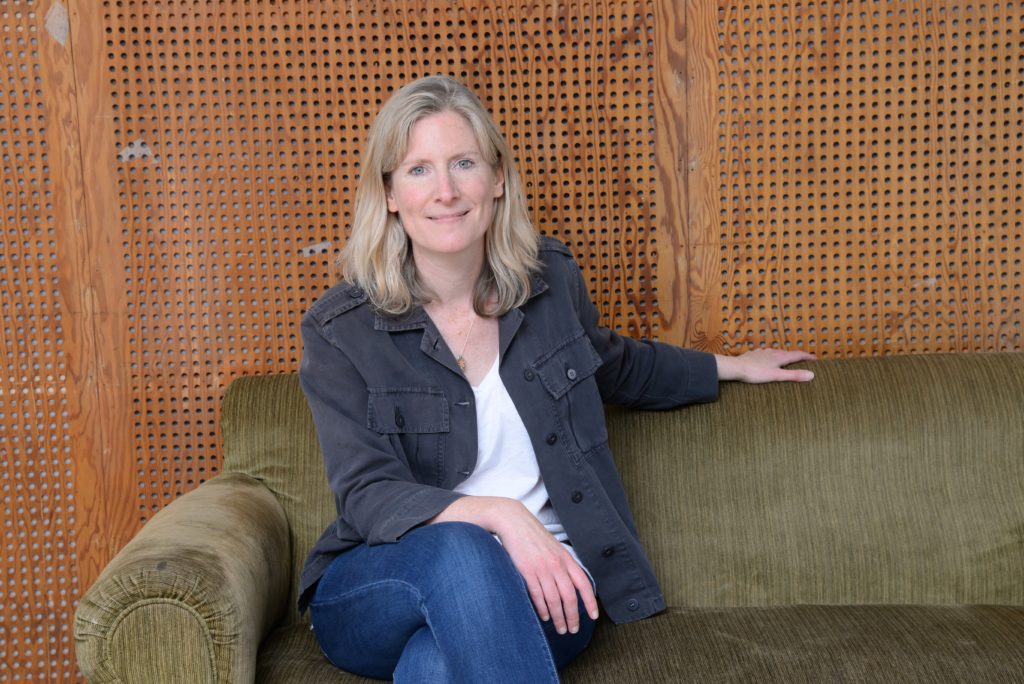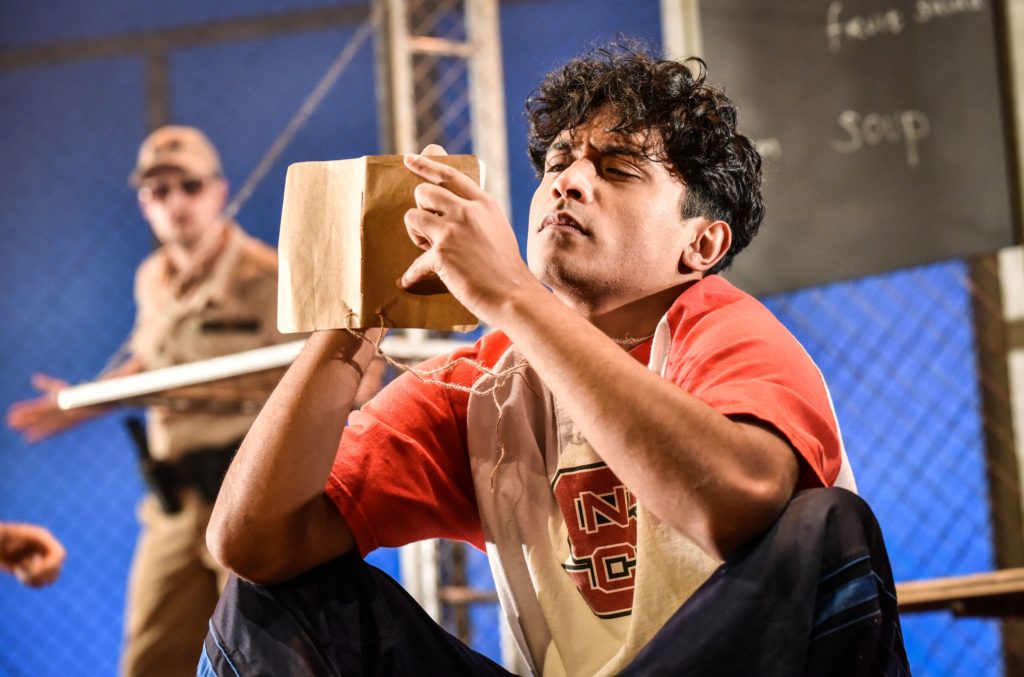
YORK company Pilot Theatre’s world premiere of The Bone Sparrow is international, not only in its subject matter of asylum seekers but in its journey from page to stage.
Artistic director Esther Richardson and her cast have ‘met’ playwright S. Shakthidharan only on Zoom, although he does plan to travel from Australia to Britain later during the tour of a co-production mounted with York Theatre Royal, Derby Theatre, Belgrade Theatre, Coventry, and Mercury Theatre, Colchester.
Shakthi, as he is known for short and on the corner of his Zoom screen for this interview, is a writer, storyteller, composer and film and theatre director-producer, from western Sydney, with Sri Lankan heritage and Tamil ancestry.
“The commission came from Esther. She contacted me out of the blue,” says Shakthi. “She’d heard about the play I wrote and premiered in Australia in 2019 [Counting And Cracking], and I think she’d read the script.”
This was no ordinary debut play. Staged by Belvoir and Co-Curious at the 2019 Sydney and Adelaide Festivals, his script won the Victorian Premier’s Literature Prize and the New South Wales Premier’s Nick Enright Prize for Playwriting; the three-hour epic production won seven Helpmann and three Sydney Theatre Awards.
“Esther had been interested in adapting Zana Fraillon’s book for some time and so she approached me,” recalls Shakti. “When I read it, I immediately connected with it because I’d worked with a lot of asylum seekers in Australia and was familiar with the different types of stories that were being told.”
In the story by children and young adults’ novelist Fraillon, Subhi is a 12-year-old Rohingya refugee boy, born in an Australian permanent detention centre after his mother fled the violence of her distant homeland. Life behind the fences is all he has ever known, but as he grows, his imagination grows too, until it is bursting at the limits of his world.
One night, Jimmie, a scruffy, impatient girl, appears from the other side of the wires, bringing a notebook written by the mother she lost. Unable to read it, she relies on Subhi to unravel her own family’s mysterious and moving history, but will Subhi and Jimmie both find a way to freedom as their tales unfold?
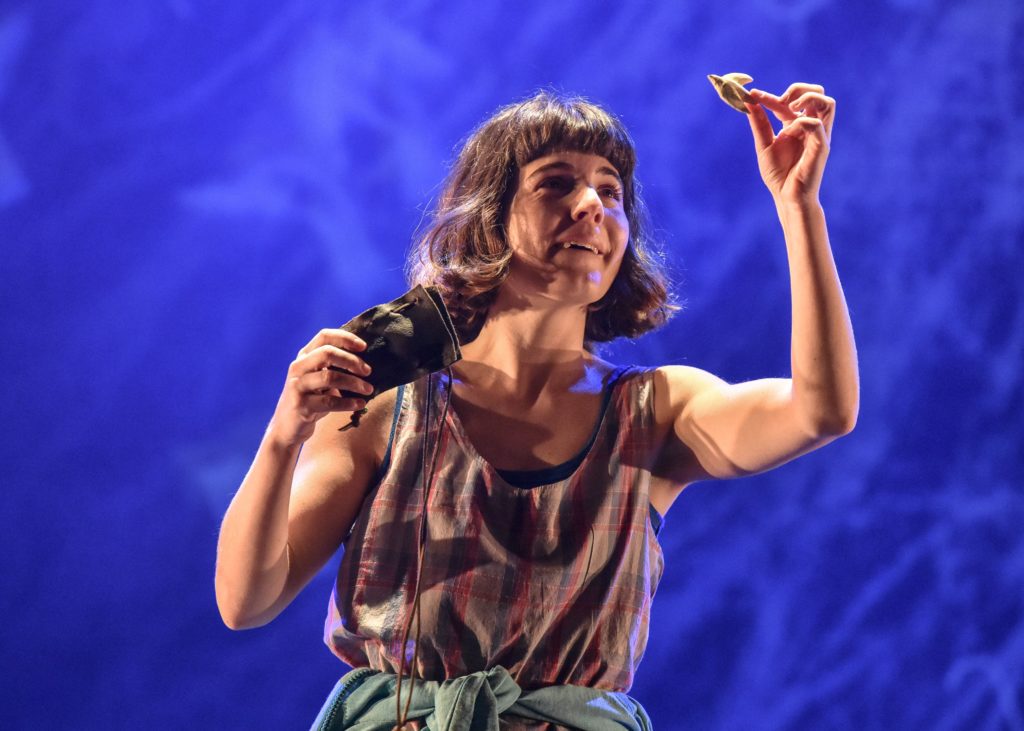
“Subhi, the protagonist, lives in the world of his imagination and doesn’t realise what’s going on around him,” says Shakthi. “Instead, he’s lost in his own charming world, and it’s fascinating that he can have such an enchanting world in such a brutal situation.”
By now, Shakthi had been joined on the Zoom screen by his own young son, awoken from his sleep – it was 8.45pm in Sydney – by the sound of voices.
“So often we are beaten down by the world,” says Shakthi. “We reshape ourselves to fit into it. Subhi’s story is different. In The Bone Sparrow this imaginative young boy discovers within himself a strength that will change the world around him.
“It’s a classic coming-of-age story and yet so much more. The Bone Sparrow is by turns a wondrous tale of epic, mythical adventure; a realistic appraisal of what it means to grow up without freedom; and a vision of renewed solidarity across our supposed divisions.”
Jimmie’s story is as significant to Shakthi as Subhi’s tale. “Immigration, asylum and race is such an important issue in Australia, where it has swung elections for 20 years now and changed government policy,” he says.
“What the children’s relationship does is bring out a common humanity within people, unlike so much of the dialogue, both by those who are well meaning and those with no compassion. Subhi and Jimmie’s friendship obliterates all that: they are two kids who develop a love for each other and have a lot of fun together as well.”
Shakthi continues: “It’s a political play but it’s not a didactic one. I love works that present the complexity of humanity, so the central relationship is so important here.
“What wasn’t in the book so much is that it’s a Rohingya Muslim family. In Zana’s story it’s portrayed with a lighter touch, but I’ve been very keen to have the Rohingya community involved in the project.”
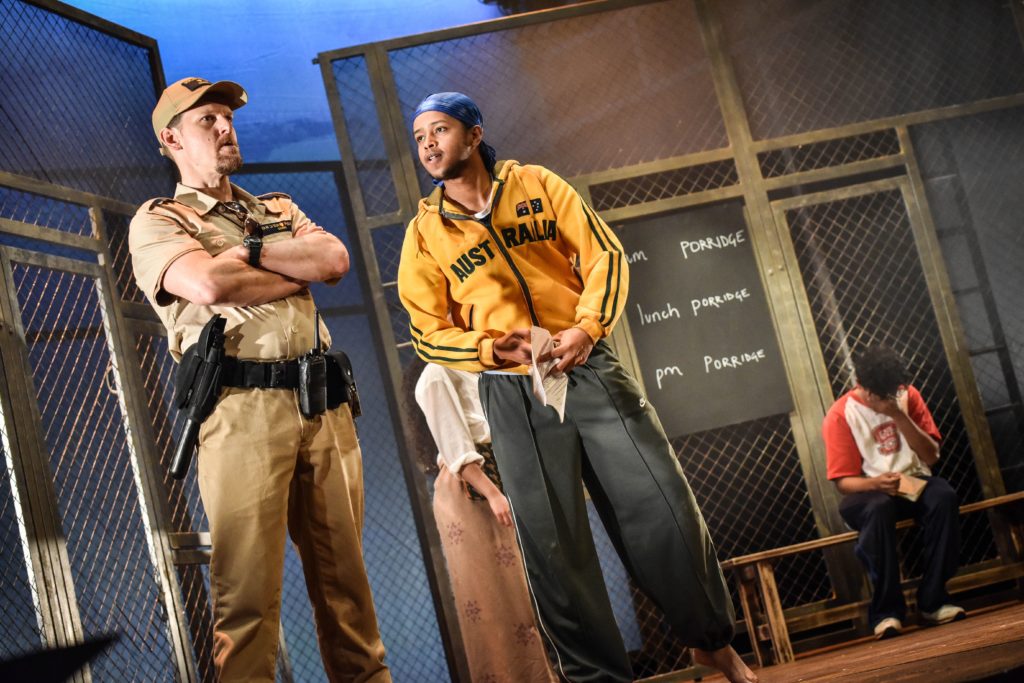
To that end, Esther has liaised with the British Rohingya community, based in Bradford and especially with Sirazul Islam, who began the project as a consultant and is now the assistant director. Like Subhi, Sirazul was born into a refugee camp, and he speaks in public about his experiences of being Rohingya.
In addition, the production team has spoken to other Rohingya people and young sanctuary-seekers, who have been consulted on the script. “The play has a stronger sense of that culture now,” says Shakthi.
Reflecting on his own childhood, he says: “I was born in Sri Lanka in 1982; when the riots happened in 1983, it deepened into civil war, and that’s when my family moved to Chandhai in India, hoping to come back to Sri Lanka.
“That’s the thing about war; it can take a while before anyone calls it a war. We moved first to India, then Singapore, then Australia by the time I was three. We never did go back to Sri Lanka. I’m an Australian, with a lot of family in England as the Tamil diaspora spread everywhere.”
Fraillon’s story of Subhi has many resonances for Shakthi. “I understand what it means not to be in your homeland because of your race, and I understand what it means for a relatively small country to descend into violence,” he says.
“Subhi’s tale is one of growing up distanced from his culture, but he reaches a crisis point in his young life where he finds strength in that culture.
“In my case, my parents pushed me into assimilation in Australia, and so I didn’t really connect with my [Tamil] culture until my late-20s.”
Assimilating meant doing things like supporting Steve Waugh’s Australian cricket team, recalls Shakthi. “I would follow what my white Australian mates were doing, whether it was music or sport,” he says.
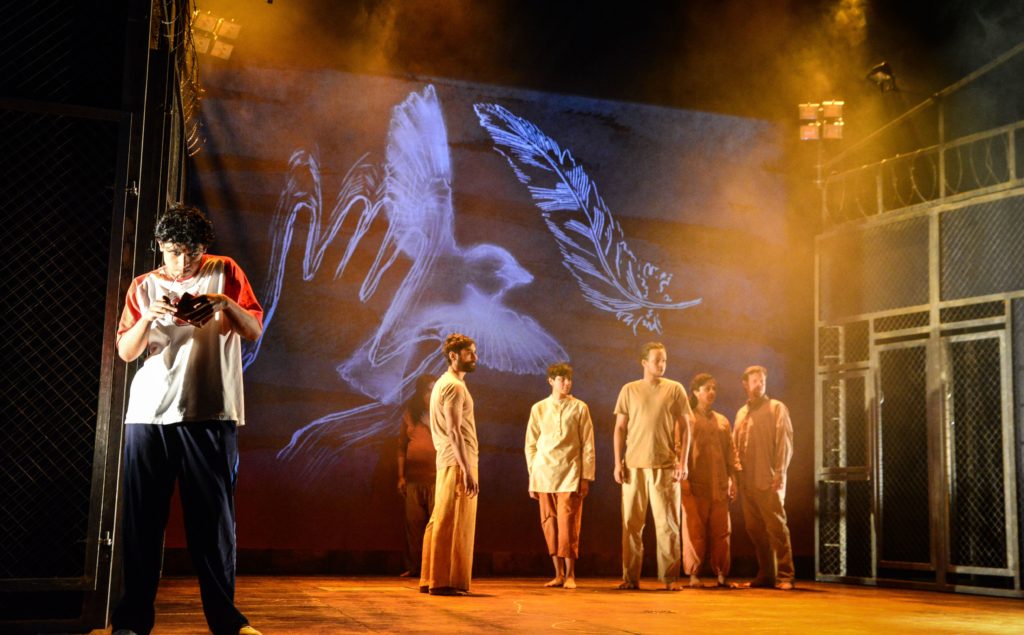
“But then you find your own culture is far more sophisticated than you realised, and through all that pain of leaving your own country, now I really appreciate both my Sri Lankan culture and my Australian culture, so that’s a bonus that other people don’t have: being able to look at the world in different ways. That stops you from being pompous.”
Addressing the thorny subject of immigration, detention centres and sanctuary seekers, Shakthi says: “You can talk about this stuff endlessly politically, but the thing I always come back to is thinking: ‘is it fair to make one group a scapegoat for everyone else?’.
“The Australian government thinks that putting one group of people in detention will be a deterrent to others, but what does it say about that one group? We have to find other ways.
“It’s very easy to make people have knee-jerk reactions on this issue – all that talk of ‘taking our jobs and protecting our borders’ – but the success of the UK, USA, Canada and Australia is co-dependent on welcoming people. You can’t have one without the other. Generally, when people come, they work their butts off, doing jobs others aren’t willing to do.
“That’s why Jimmie’s relationship with Subhi is so vital in the story. She doesn’t apply labels to him. She just sees him as a boy and a friend.”
Living in suburban western Sydney, Shakthi is in a community where many migrants have settled. “In its time, it’s had the most diverse population in the world,” he says. “Going for a cup of coffee in the morning, you pass every culture.”
Plenty of cups of coffee later, The Bone Sparrow is up and running at York Theatre Royal. “I’ve had a great deal of fun collaborating with Pilot to develop a grand theatricality for this work and deepen its relationship with the Rohingya community,” says Shakthi. “I hope audiences are as delighted and moved by this story as we were in the process of adapting it.”
Pilot Theatre’s premiere of The Bone Sparrow runs at York Theatre Royal until Saturday, then on tour from March 8 to April 2. York box office: 01904 623568 or at yorktheatreroyal.co.uk.
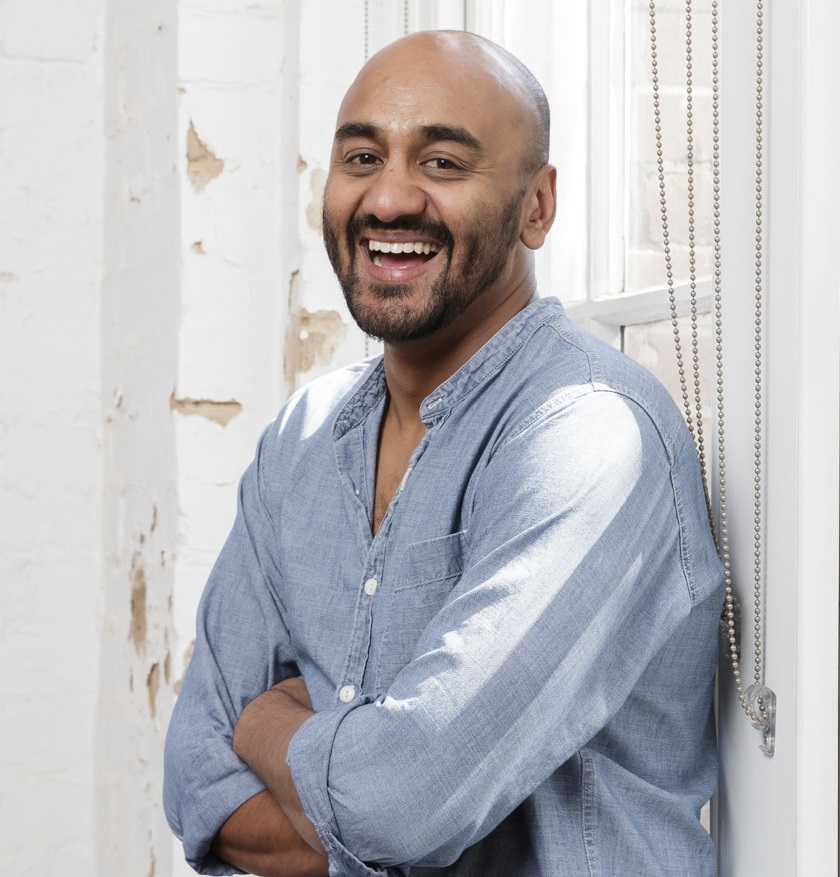
S. Shakthidharan in profile:
Shakthi is a western Australian writer, producer, composer and director for screen and stage of Sri Lankan heritage and Tamil ancestry. His 2019 debut play, the three-hour epic Counting And Cracking, had a profound effect on the Sri Lankan community in Sydney.
He has a new commission in development with Sydney Festival; a number of plays with Belvoir; a feature film with Felix Media and two new television projects.
He is the artistic director of Kurinji and lead artistic consultant at Co-Curious, a sister company to CuriousWorks, where he was the founder and artistic director from 2003 to 2018.

